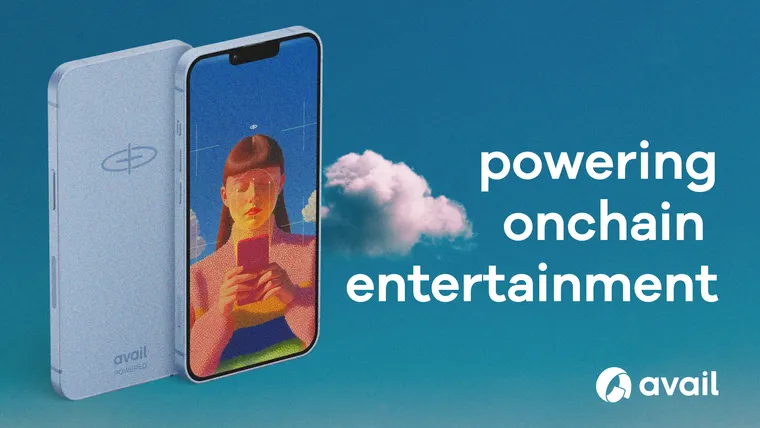Sophon’s mission is to become the go-to platform for consumer-friendly blockchain products, used by existing and new users alike. By building a Validium on Avail, Sophon makes it easy for both developers and consumers to experience the benefits of blockchain technology without many of the usability issues facing today’s blockchain applications, like individually paying for each onchain interaction. Several apps are set to launch alongside Sophon’s mainnet debut on December 18th, including SyncSwap, GAMP, Petopia, Anomaly, Rivalry, Brutal Knights, and Aethir providing a seamless way for users to experience the benefits of blockchain. Additional leading brands in gaming, sports betting, ticketing, consumer AI, and more are set to deploy on Sophon throughout 2025.
Avail plays a foundational role in supporting apps and users on Sophon, by securing every transaction on Avail’s public network. This ensures that users can always access and recover their assets, offering a significant improvement over other Validium chains that don’t make transaction data publicly available. Avail’s blockchain is secured by a community of Validators and Avail Stakers who stake the AVAIL token and receive staking rewards in return. Currently, stAVAIL Stakers can benefit from multiple rewards, including native AVAIL APY, deq.fi points, and exclusive Sophon incentives through Sophon and Avail's unified token initiative.
Expanding Blockchain Usage & Adoption
Sophon believes that blockchains should be usable beyond the typical use cases that have become popular among crypto’s early adopters. Blockchain technology can already improve the products available to non-crypto users significantly, particularly within consumer applications like gaming, AI, sports betting and ticketing. However, these non-crypto native users are familiar with easy-to-use web2 applications, and not accustomed to submitting transactions on a blockchain or managing crypto wallets. For many users, the blockchain learning curve is simply not worth taking on.
Sophon aims to change this by introducing Native Account Abstraction. This includes Smart Accounts, which allow programmable rules for greater flexibility, and Paymasters, which can subsidize costs for other accounts, potentially making certain transactions free for end-users. These innovations enable a seamless blockchain experience for real-world applications by removing friction points, improving asset ownership and bolstering censorship resistance.
While Rollups have brought costs down and improved the throughput of many blockchain applications, Sophon takes this a step further, adding monumental improvements to the throughput and scalability of blockchain apps, even when compared with Rollups. With near-instant transactions, subsecond completion times and low, predictable fees, Sophon offers developers a way to utilize blockchains within their apps without performance bottlenecks. Using this approach, Sophon will bring entertainment on-chain and promote the adoption of blockchains beyond crypto circles.
Applications Launching On Sophon
Here is a sample of the applications you can expect to see launching on Sophon:
Petopia is an intense top-down roguelite shooter developed by Mirai Labs, available for download on the iOS and Android App Store, with over 100k downloads.
GAMP is a decentralized playground where gamers from across the world come together to play, compete, and connect with almost 200,000 registered gamers and more than 110 million gameplay events recorded.
Aethir, a decentralized GPU network with more than 40,000 on demand GPUs helps train AI models at a fraction of the cost of centralized cloud providers and makes using real compute power verifiable on-chain.
Rivalry is an internationally licensed sportsbook with a clear mission: to define the future of betting entertainment for a generation born on the internet.
Brutal Knights is a Web3 strategy game for browser and mobile crossplay.
Anomaly is an AI gaming platform creating mini-games for social networks.
Keeping Sophon Publicly Verifiable
While numerous projects have been attracted by the throughput improvements and cost reductions of Validium chains, they have opted for a less transparent model utilizing Data Availability Committees (DACs) at the user’s expense. Validiums achieve higher throughput and lower costs by processing transactions and data availability off the Ethereum Mainnet. Validiums then publish proofs to Ethereum for verification.
Until recently, the common way was through a Data Availability Committee (DAC), consisting of a group of nodes that promise to keep transaction data available. DAC nodes may be penalized for not making data available, however the end user has no way of publicly verifying this, like they do on a regular blockchain. Rather than trust the committee, Sophon users can verify data availability for themselves, even from a smartphone.
The goal of this is to protect the user’s funds, ensuring they can always access their assets without requiring any approvals. Sophon’s Validium helps increase the throughput of blockchain applications while retaining core decentralization principles.
Beyond Mainnet
A number of key milestones are still yet to come as Sophon rolls out on mainnet over the coming months. This includes more applications going live, Sophon’s token launch, the migration of Sophon’s farm to mainnet, implementing transaction verification on Ethereum with VectorX and the Sophon Guardian rollout.
Follow Avail and Sophon on X for more as we keep you up to date with this new and exciting chapter for blockchain technology.


